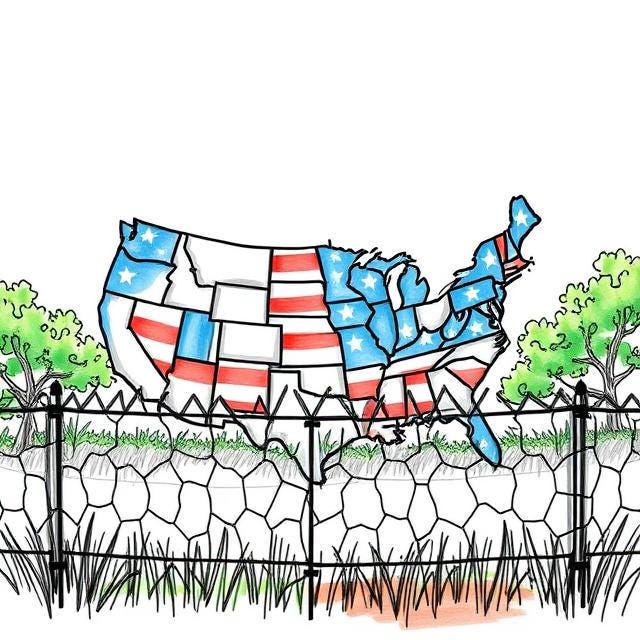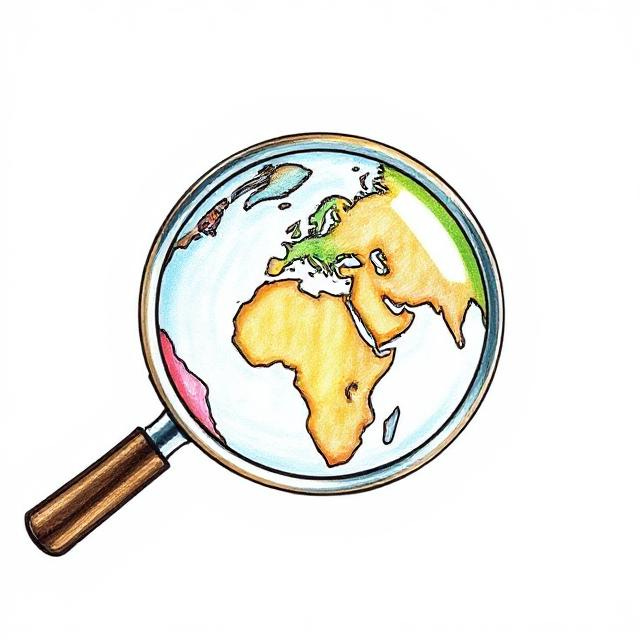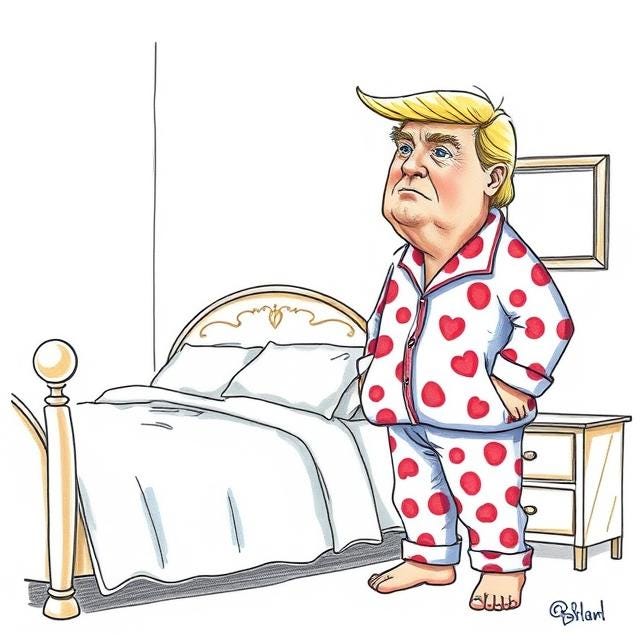Tariffying!
Trump's new world order
Trump’s tariffs are already causing chaos. Share prices are plummeting, world leaders are filling up Trump’s voicemail machine and companies that import goods to the US are grappling with fears over their futures.
In 1789, a newly formed United States government recognised the need for income. It would generate this income, congressman James Madison proposed, through tariffs. Tariffs accounted for around 90% of the US’s revenue. It wasn’t until 1913, and the introduction of the income tax, that the government could begin lowering tariffs and promote international trade.
Since then, politicians on all sides have mostly universally agreed that lower tariffs are a good thing: it enables American consumers to get cheaper, better goods from around the world - and importantly gives the American government leverage to negotiate good trade deals on behalf of American manufacturers.
There was consensus - until MAGA. Trump rode on a wave of disenfranchised Americans that lost out to globalisation, hate income tax and love America. Tariffs seem like a neat solution: they encourage more manufacturing to happen domestically, creating jobs for those middle Americans. They give the American government a source of income that isn’t their own citizens. And they harken back to America’s founding: it worked then, why not now?
The trouble is that the consequences might be painful. Consumers will see prices go up and the selection of goods go down. Countries will put reciprocal tariffs on the USA, increasing the cost of exporting. And international relations will be burned, making everything harder for the administration - whether it’s negotiating peace in the Middle East or forging a new trade deal.
The end of globalisation
Here’s something I wrote in February (A workerless future):
We used to eat fruit and veg grown nearby, milk made in the local farm, and buy metal and fabric made by local people. Then, we got really good at moving goods from anywhere in the world to our doorstep.
But that system has proven to be terrible for the environment, at the mercy of geopolitics, and dependent on cheap labour.
… If the last 5 decades have been defined by globalisation, the next 5 will be defined by localisation.
Technology is already reversing globalisation: 3D printing has the potential to bring more manufacturing local, while streaming has upended entire industries like CDs and DVDs.
Geopolitics are now having the same effect. Countries are quite reasonably growing reluctant to allow their adversaries to build things that are crucial to our infrastructure, and to control the supply chain. When gas comes from Russia, they can switch off the pipes and cut off our power. When semiconductors come from China, they can stop sending them over and leave our tech development in the dust. Politicians on all sides have recognised that domestic production is as much about security as it is about economics.
There was a general trend against globalisation, despite decades of establishing it as the predominant system, but Trump has vowed to bring a sledgehammer to it. That’s dangerous, in a world that - despite moving back to more domestic production - still depends heavily on trade.
The end of US dominance
All of our lives, America has been number one. Their military might enabled them to police the world. Their widespread aid efforts gave them unparalleled soft power. Their economic boom made them home to major companies, billionaires and wealth.
But that era is over.
In dismantling USAID, introducing these tariffs and pulling out of global bodies and treaties, Trump is stripping America of its soft power, alienating his allies and bringing an end to US dominance.
China is poised to plug the gap. While America cuts spending on overseas aid, China is increasing it. Though China gives aid with an asterisk: often the money is given as a loan, and that buys diplomatic capital. When the moment comes that countries are forced to choose between West and East, they’ll know that one side has them by the pursestrings.
The introduction of tariffs also makes the US a worse place to do business. America Inc has a great global reputation, British entrepreneurs are perpetually trying to ‘crack America’. But those days might be coming to an end: even the giants like Apple saw their share prices tumble as soon as Trump brandished his big tariff board.
Trump is throwing away America’s soft power, diplomatic reputation and corporate-friendliness.
The end of Trump?
In 2024, the world voted against incumbents. In just about every country that held an election, the electorate booted out their leader and gave someone else a go.
The main driver? Inflation. Everybody hates inflation, and for good reason.
Trump promised an "end to the devastating inflation crisis" and said, emphatically, "Prices will come down".
But tariffs make that almost impossible. American-made goods are more expensive - Labour costs more, materials aren’t always available, there is more red tape to contend with. And now, Trump just hiked the price of internationally produced goods. It’s impossible to imagine a world where this happens, and prices don’t go up.
The Federal Reserve chief has already pointed out that inflation is likely to return with a bang as a result of the tariffs.
Inflation was somewhat inevitable, but the scale and speed of the tariffs have hit the stock market hard. 62% of Americans hold stock (compare that to 26% of Brits): the stock market crash we’re seeing is making them tangibly poorer.
And now, a recession is looming. Trump’s allies say it is worth it, but Americans that lose their jobs or businesses might disagree.
If prices go up, savings go down and a recession hits American workers, Trump may find his popularity plummeting. He can’t run again, so he doesn’t need to worry about re-election, but his overwhelming (and sometimes inexplicable) popularity is what keeps him safe from impeachment and even criminal proceedings against him.
If the tariff move is a misfire, which it seems like it might be, this could be the end of Trump.





Might be worth changing your name to Zoltar, first the Eagles and now globalisation. I would love to see more uk industries but that does take time and space/land which as an island is a commodity. 100 percent agree its the best way help the planet.